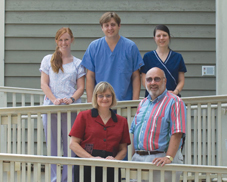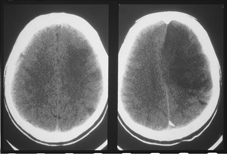Hospitals again look to integrate doctors
A new incarnation of hospital integration has sprung up, leaving some internists who were burned the first time around leery about jumping into the fray. But others are eager to set aside the increasingly onerous responsibilities of practice ownership.
The hospital integration movement of the 1990s resembled a kid in a candy store. Hospitals and practice management companies quickly gobbled up practices and their physicians, with little thought to the aftermath.
Almost universally, administrators failed to appropriately manage growth, and what followed was an equally frenzied period of divestment. Hospital-employed physicians were left to clean up the mess by re-establishing private and group practices in an era of shrinking reimbursement and escalating overhead.

Now a new incarnation of hospital integration has sprung up. While some internists who were burned the first time around are leery about jumping into the fray, others are eager to set aside the increasingly onerous responsibilities of practice ownership.
Hospitals are prepared to welcome outpatient physicians and their ready pool of patients. Randy Bauman, president of consulting group Delta Healthcare, said that hospitals are purchasing physician practices at a rate not seen since the 1990s.
“The earlier movement was fueled by pending health care reform and physician practice management companies,” explained Mr. Bauman. “But health care reform failed and most practice management companies followed suit a few years later.”
One of the problems was that prior hospital administrators failed to distinguish between the business of hospital and non-hospital health care. “Hospitals did a very poor job of billing for outpatient procedures. It was not the main focus of their business. They were not good at it and didn't make any attempt to get good at it. So they were losing money left and right,” recalled internist Dean J. Limeri, FACP, clinical medical director of primary care at Ellis Hospital in Schenectady, N.Y.
But now they're ready to try again. The recession appears to be a primary influence in the resurgence of the integration paradigm. A recent American Hospital Association survey found that hospital admissions, elective procedures, patient payments, investment income and new credit opportunities have all declined, while there's been a concurrent increase in interest expenses.
For hospitals, the calculations are pretty simple: Physicians are the conduit through which patients are funneled, and hospitals and health systems need not only to fill beds, but to use ancillary services such as imaging and physical therapy, said Margo Williams, senior associate of ACP's Center for Practice Improvement & Innovation.
“Hospitals are seeing a shortage of primary care physicians and that's their bread and butter. So they are using these deals to try to protect their base. On the other side of the equation, physicians are feeling pinched: too many patients, long hours, lack of resources. They think maybe a hospital or health system will provide some backing,” Ms. Williams explained.
What's in it for you?
Part of the appeal of either becoming hospital-employed or selling one's practice to a health system is that it may offer the perks of a 9 to 5 job: more time with family, fewer administrative headaches.
“It's very expensive to be an internist. If you can offload some of that expense and get back to just practicing medicine and let someone else run your practice and run it efficiently, then you can still make a good living and the hospital can allow you the opportunity to practice in a better way,” said Sandra E.D. McGraw, JD, of The Health Care Group, Inc., in Plymouth Meeting, Pa.
James P. Monahan, FACP, is typical of internists now employed by a hospital or health system. The majority of his Northern Illinois group practice was acquired by Aurora Health Care of Wisconsin this year. One major factor in his decision was the prospect of retirement.
The group's decision, however, was not unanimous. “One of my group's young physicians separated from us and went into his own practice at age 40. If I were his age I might have done the same, but I am too old to start over,” Dr. Monahan said.
But his practice's other young associates, and plenty of their peers, see the appeal of hospital employment. “While most folks coming out of medical school are not choosing primary care medicine, those who do tend to be people who are more interested in regular schedules and a more normal lifestyle than a traditional internist, so more structured types of settings are desirable,” said internist Lawrence E. Klein, FACP, who practices in Washington, D.C.
There are other benefits to the transition, according to Dr. Monahan. “I expect the actual nurse-to-patient ratio at the Aurora hospital to be better than what we are accustomed to. Their hospital's quality measures are better than what we are used to and their electronic health record system is superior to what we were able to afford as an independent group. I expect their systems to help us to improve the quality of inpatient and outpatient services we provide to our patients,” he said.
Another attractive element of hospital employment is the idea that physicians will have ready access to the best and newest equipment. But Dr. Limeri warned that this could go either way.
“Private practices are like little speedboats. If you realize you need something for the office you go and buy it and move on,” he said. “Hospitals are like big battleships. Things that you legitimately need may take a lot longer to get or you may not get them at all depending on the financial picture at the moment and an administrator's decision.”
The downside
The biggest disadvantage to hospital employment for many physicians is lack of autonomy. Dr. Monahan mentioned his loss of control over scheduling continuing medical education and vacation time as a major drawback. “The valuation of our practice relies in part on continued productivity by all active members of the group, so to live up to my word in the agreement with Aurora, I expect to be taking less time off than I would otherwise have taken,” he explained.
In Charleston, S.C., Barbara E. Magera, ACP Member, notes that hospitals are aggressively purchasing specialty and primary care practices. Frequently, the hospital offers the physician an attractive, steady salary during an economic slump, making it hard to turn down.
She stressed the importance of understanding the hospital's expectations for items such as meeting clinical outcomes and adhering to clinical guidelines; supervising paramedical personnel; and participating in voluntary hospital committees. “You have to be really careful because a lot of this takes away from the autonomy of the decision-making process, yet the physician is legally, morally and ethically responsible for the patient,” Dr. Magera said.
What's more, she suggested that selling one's practice to a hospital and then becoming hospital-employed sets up a conflict of interest. Dr. Magera said there is no contractual carrot that could lure her into hospital employment. “There is not much that a hospital can offer me in exchange for servitude to them. If their plan fails, the hospital administrators will move on to another capital venture and the physician is left as hired help in a system that is defunct,” she said.
Appealing or not, hospital integration is likely to be a growing option for physician-owned practices. Dr. Monahan said the desirable independent primary care groups in his region have each had multiple offers. “Some, like us, have sold already. Some are resolved to remain independent, and the rest are weighing their options.”
The dotted line
Internists who opt for integration should be looking for an agreement with compensation that's fair-market and relatively guaranteed, according to Ms. McGraw, the attorney. “Some of these contracts predicate physician payment upon collections, and that puts the physician at risk to the efficiency of the hospital billing and collection process a common weakness in the system. Ideally the contract should include a guarantee and incentive,” she said.
Ms. McGraw warned that caps on incentives are becoming increasingly common in these contracts. “It's usually under the guise of keeping compensation within the fair-market value range, but to some degree that logic is flawed,” she said. “I think caps can be a troubling idea for otherwise high producers and they're almost always a disincentive.”
Productivity clauses are another potential issue. Some physicians fear they are the gateway to assembly-line medicine. However, Dr. Limeri, who is currently helping craft the bonus package for hospital-employed physicians at Ellis Hospital, thinks they are a worthwhile part of the deal.
“In addition to a salary that is commensurate with what physicians are earning in private practice, the bonus portion of the package enables these hospital-employed physicians to earn more depending on office productivity and other variables,” he explained.
The biggest mistake physicians make in selling their practices, according Mr. Bauman, is jumping in without being sufficiently prepared. An accurate evaluation of a practice's worth is a critical first step, he said.
Dr. Monahan concurred. “Get a practice valuation from an experienced appraiser and get legal advice from someone experienced in practice buyouts. They are expensive [for] a small practice, but the expense pays off in strengthening your negotiating position,” he said. “An appraisal is useful not only to give an idea of a negotiating range, but also in case it later becomes necessary to defend against a legal challenge.”
An experienced health care attorney can help with negotiation issues, like caps on incentives. Keeping accurate track of how many referrals, both admissions and outpatient surgery, your practice sends to the hospital can also strengthen your position at the bargaining table, added Dr. Monahan.
Mr. Bauman recommended asking lots of questions. “Ask if you will have a say in hiring and firing of staff, about work rules and staff bonus, and if the practice office will move or remain in its current location. Finding out later might be too late,” he counseled.
He also suggested taking into consideration your current relationship with the hospital and administrators. “But don't base your decision on this relationship because administrators at the executive level tend to have a fairly active turnover rate,” he said.
Other options
Practice acquisition and outright hospital employment of physicians are not the only options in this new integration movement. All sorts of creative arrangements are cropping up to unite hospitals with patients and profits.
“Here in Washington, D.C., I have not heard of hospitals buying up practices. However, several of the community hospitals in the area are building physician office buildings and working hard to entice groups of physicians to move their practices to these buildings,” said Dr. Klein. “By doing this, these physicians and their practices can be more tightly tied to these hospitals.”
Dr. Klein's group of 14 physicians considered the hospital's offer of a very competitive rent in the new hospital-owned doctors' office building but ultimately decided not to tie themselves too strongly to a single hospital in case it did not prove to be the best setting for them over time. Several other groups in the building, primarily procedure-oriented ones, are considering moving to lower overhead and remain key players at the hospital. Fears of losing patients to proceduralists may have played a role, Dr. Klein added.
In addition to the perk of reduced operating costs, Dr. Klein said another benefit lies in the cozier relationship with the hospital. “It links physicians a little more closely to the hospital and probably makes it a little easier for them to have influence in the hospital setting,” he said.
The arrangement has been a boon to some in tough times. Physicians who've tied themselves to hospitals are optimistic that integration will flourish instead of floundering as it did in the ‘90s.
“Medical centers are getting better at the administrative side of practice management. I won't say that they're great but they are getting better,” said Ms. McGraw. “If these arrangements enable physicians to get back to practicing medicine instead of micromanaging practices, and hospitals get physicians who are spending more time concentrating on patients, than it's a win-win for all concerned.”




